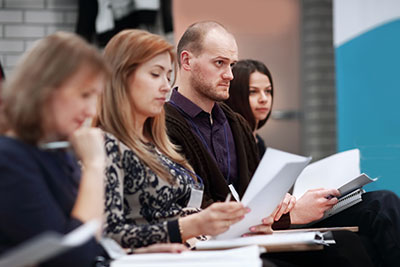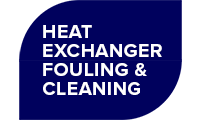2024 Conference
Synopsis
Heat exchanger fouling presents a persistent challenge that affects the economics, production capacity, and environmental and safety considerations in diverse industries, including food, pharmaceutical, water, chemical, petrochemical, and refining.
Numerous studies have shown that heat exchanger fouling is contributing significantly to global CO2 emissions. A better understanding of fouling mechanisms, fouling control, and mitigation will help the energy-intensive process industries to significantly reduce their carbon footprint.
Furthermore, cost penalties associated with heat exchanger fouling are estimated to be roughly 0.25% of the gross domestic product (GDP) for industrialized countries. Fouling of heat transfer equipment is costing global industries hundreds of millions of dollars every year in increased equipment and maintenance costs, as well as energy and production losses.
It is important to advance research in fouling mechanisms, performance monitoring and process optimization methods, the use of predictive models, and fouling mitigation and cleaning technologies.
The Heat Exchanger Fouling & Cleaning Conference provides a unique opportunity to facilitate innovative thinking through the sharing of ideas, research, and technology. Collaboration is encouraged through interaction, discussion, and networking. Attendees will be able to participate in informative presentations and poster sessions, as well as interactive ad hoc discussions. Social activities—meals, evening receptions, and an offsite excursion—are also planned.
Submissions from industry and academia—including students presenting their work—are welcome. Because fouling is a complex problem, all papers related to this topic will be considered, including practical and theoretical approaches, case studies, modeling, techniques on cleaning, or new inventions.
Scope
- Fouling in industrial heat exchanger systems
- Crude oil and hydrocarbon systems
- Cooling water systems
- Petrochemical systems
- Biofuels and renewable feedstocks
- Thermal desalination units
- Power plants
- Dairy and food production
- Micro, milli and compact heat exchanger fouling
- Mechanisms of heat transfer fouling (crystallization, particulate, reaction, corrosion, and biofouling)
- Monitoring, scheduling, and controlling the fouling and cleaning in heat exchangers and associated networks
- Design, retrofit, and revamp of heat exchangers and associated networks to mitigate fouling
- Surface modifications
- Cleaning of heat exchangers
- Modeling and simulation of fouling processes
- Numerical studies on fouling processes
- Modeling environmental and economic impact of fouling and cleaning
- Role of digital transformation in fouling management

Format
The conference begins Sunday afternoon and finishes on Thursday evening after the Gala Dinner and awards (with hotel check out on Friday, April 26). Morning and afternoon sessions provide a stimulating balance between formal presentations, small group interactions, and informal discussions. Adequate time is provided in the afternoons and social hours for ad hoc meetings and discussions. To encourage maximum interaction and to avoid parallel sessions, the number of conference participants is limited to 120. As with previous conferences, the registration fees include accommodations, meals, and social activities. All participants will stay in the conference hotel and meet for meals and evening functions.
Submit Your Abstract
Would you be interested in presenting at our conference? Your presentation would be a great opportunity to share your research with a wider audience and to network with other experts. The deadline to submit abstracts is September 27, 2023.
